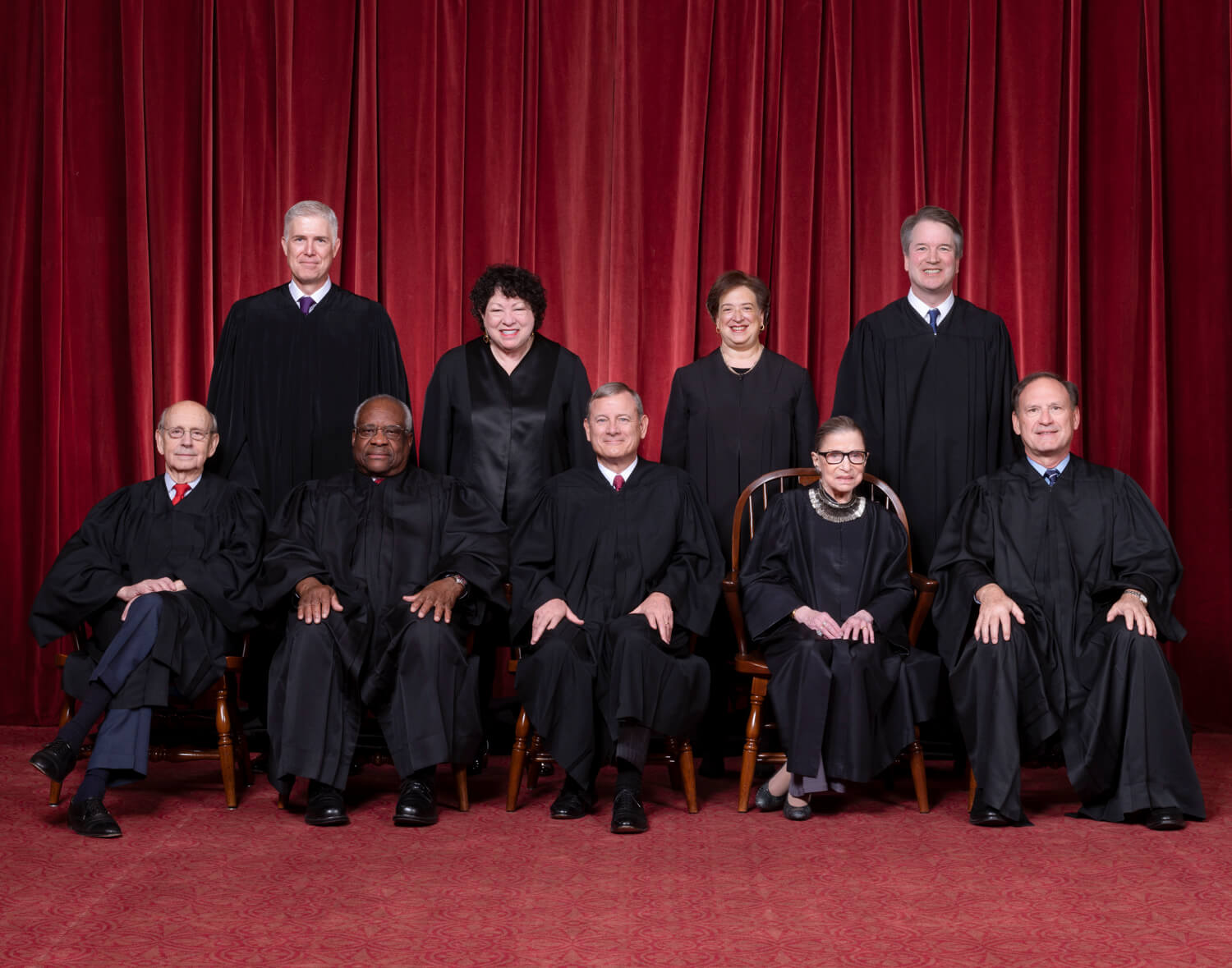Gerrymandering Fights Aren’t Over

Battles over partisan gerrymandering are poised to shift to the states in the wake of a major U.S. Supreme Court decision issued late last month.
The high court dealt a major blow to efforts to combat politicized redistricting when it issued a high-profile 5-4 opinion finding that courts couldn’t settle such disputes.
Now, state-level efforts to combat partisan gerrymandering are moving forward in what some advocates see as a new era of reform.
“Now that the Supreme Court has walked away from its constitutional responsibility, it’s even more important … to fight this on a state-by-state basis,” said Dan Vicuña, manager of the national redistricting program at Common Cause, a democracy reform group. We’ve seen “incredible momentum” over the last few years and “we fully expect that momentum to continue.”
Advocates around the country seem to agree.
“We have to keep pushing forward,” said Tom Wolf, legal counsel at the Brennan Center for Justice.
In Maryland, Gov. Lawrence J. Hogan Jr. (R) called the Supreme Court decision “disappointing,” and vowed to push ahead with his attempts to create a nonpartisan commission for congressional and legislative redistricting. But those efforts have run aground in the past due to Democratic opposition in the General Assembly – and that isn’t likely to dissipate unless Republicans abandon their gerrymandered maps and partisan redistricting process in other states.
The Supreme Court’s decision overturns lower-court decisions that heavily gerrymandered congressional maps in North Carolina and Maryland were unconstitutional and will likely lead to the dismissal of similar lawsuits in Michigan, Wisconsin and Ohio.
But Chief Justice John Roberts pointed out in his 5-4 majority opinion that voters can take political routes to redistricting reform.
“Our conclusion does not condone excessive partisan gerrymandering,” Roberts wrote. “Nor does our conclusion condemn complaints about districting to echo into a void. The states, for example, are actively addressing the issue on a number of fronts.”
Last November, voters in five states – Colorado, Michigan, Missouri, Ohio, and Utah – put restrictions on partisan gerrymandering. Michigan and Colorado approved initiatives to create independent redistricting commissions; Utah created an advisory commission; Missouri strengthened redistricting rules and created a new position – state demographer – charged with drawing maps; and Ohio approved a constitutional amendment banning partisan gerrymandering.
That brings the number of states with commissions responsible for drawing state legislative maps to 14, and the number of states with commissions primarily responsible for congressional maps to eight, according to the National Conference on State Legislatures. Numerous states have also enacted legislation banning the favoring or disfavoring of party or incumbent for congressional, legislative, or both kinds of maps.
In Virginia, OneVirginia2021, a nonpartisan group working to end gerrymandering in the state, is working toward a statewide referendum on a measure that would create a hybrid commission to redraw the state’s congressional and legislative lines. The General Assembly approved a “first read” of the constitutional amendment this year and must approve a “second read” next year to get it on the ballot in 2020 – an uncertainty given this fall’s state legislative elections.
Advocates in other states are also working toward legislative solutions, according to Common Cause. In New Hampshire, the state legislature approved a bill in June that would create an independent commission to redraw the state’s legislative districts. The measure now awaits approval by GOP Gov. Chris Sununu, who hasn’t indicated his position yet.
In Pennsylvania, a governor-appointed panel to study best practices of redistricting reform will present recommendations to the governor and state legislature next month. And in Minnesota, the League of Women Voters is pushing for a special citizen commission that would provide draft maps to the state Legislature, which would then vote them up or down.
Elsewhere, activists are pursuing ballot initiatives, which are permitted in about half of the states.
In Arkansas, the state attorney general has cleared petitioners to collect signatures for a ballot initiative that would create a citizens’ commission to draw congressional and state legislative districts. And advocates in Oregon have also proposed a ballot initiative that would create an impartial, citizen-led commission.
“You’re starting to see a wave across the country,” Brian Cannon, executive director of OneVirginia2021, said, noting that action is “bubbling up” in other states as well.
After the 2018 changes, Wolf said he sees a “deep appetite” for reform. But the clock is ticking on efforts to change the system before the next round of redistricting begins, following the 2020 Census. Apart from independent commissions, Wolf says advocates can take steps to change the criteria used in the redistricting process and increase participation and transparency.
Hogan’s efforts notwithstanding, whether Maryland joins the state-by-state push for reform is very much an open question. But even if Hogan’s attempts to create a nonpartisan redistricting commission fall short, the redistricting process in Maryland will be different following the Census by virtue of Hogan’s presence – a rare Republican governor negotiating with a Democratic legislature on how to draw congressional and legislative maps.
A potential Democratic candidate for governor in 2022, state Comptroller Peter V.R. Franchot (D) said last week that he supports creating single-member districts for the House of Delegates. While that’s a top priority for Maryland Republicans, the concept has been endorsed by some progressive leaders as well. Franchot also asserted that district boundaries should be created entirely by computer, without human interference.
There could also be action on redistricting in Congress, although it appears unlikely.
The U.S. House of Representatives passed an election reform package sponsored by Maryland Rep. John P. Sarbanes (D) earlier this year that would, among other things, require states to use independent redistricting commissions to draw congressional districts. Senate Republicans, who control the chamber, are not expected to take up the measure, but Wolf says it could move forward after the 2020 elections. In the meantime, he said, the bill is setting the terms of the debate – a worthy purpose in his view.
At a minimum, voters have a better understanding of how the current redistricting process works – which advocates say will fuel grass-roots efforts for change. It may also lead to higher turnout among Democratic voters this election cycle, said Democrat James Hodges, former governor of South Carolina. “I do think it will be a rallying cry for Democratic voters.”
And the Supreme Court’s ruling doesn’t vitiate all gerrymandering cases.
Notably, the high court has not been reluctant to strike down racial gerrymanders, Cannon said. Plaintiffs may still be able to mount successful challenges to partisan gerrymanders in state court, as they hope to do in North Carolina, where Common Cause and others argue that a partisan gerrymander violates the state constitution. Trial begins July 15 in Wake County Superior Court. Unlike the U.S. Supreme Court, the North Carolina Supreme Court leans heavily Democratic.
Josh Kurtz contributed to this report.
Allison Stevens is a Capitol Hill correspondent for States Newsroom.
Did someone forward this to you? Get your own daily morning news roundup in your inbox. Free. Sign up here.



 Creative Commons Attribution
Creative Commons Attribution